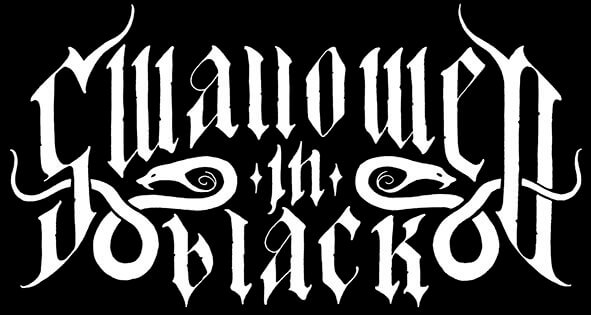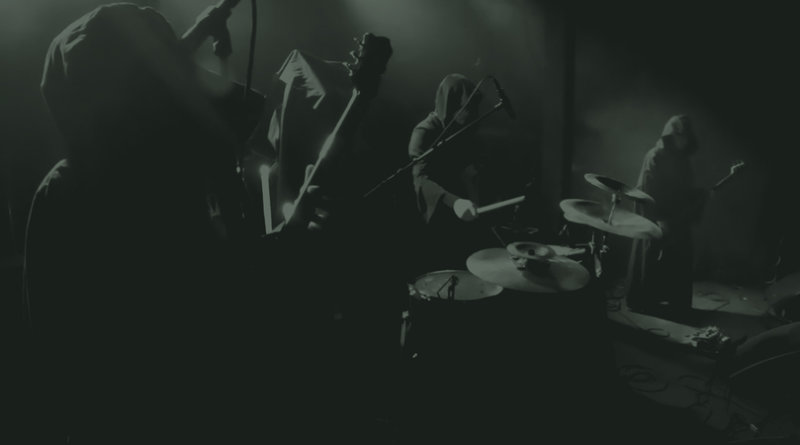“DEATH IS EVERYTHING AND EVERYWHERE BUT IN DIFFERENT PHASES OF CONSCIOUSNESS” – THE FUNERAL ORCHESTRA
Death is the mantra on The Funeral Orchestra’s long-awaited sophomore full-length, ‘Negative Evocation Rites’ – a crawling, crushing leviathan of subgenre-defying dark art that seamlessly fuses the pacing of Funeral Doom with the malignant spirit of Death Metal and Black Metal. Enraptured by the seismic power of this bleak, oppressive offering, I invited Priest I to discuss ever-enveloping darkness, pigeonholes, inner chaos and the endless death.
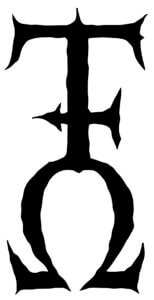 ‘Negative Evocation Rites’ is a decidedly dark and disturbing journey. Its timbre is one of terror and the songs reverberate with utter despair and despondency, each a harrowing celebratory death rite. Unlike a lot of other bands tagged as Funeral Doom, there is very little sentiment or comfort to be found here, no frills, no sweet melodies, rot instead of autumn leaves. What happened between the 2003 debut full-length, ‘Feeding The Abyss’, and now to prompt you to venture down this even darker path, where there is no hope whatsoever?
‘Negative Evocation Rites’ is a decidedly dark and disturbing journey. Its timbre is one of terror and the songs reverberate with utter despair and despondency, each a harrowing celebratory death rite. Unlike a lot of other bands tagged as Funeral Doom, there is very little sentiment or comfort to be found here, no frills, no sweet melodies, rot instead of autumn leaves. What happened between the 2003 debut full-length, ‘Feeding The Abyss’, and now to prompt you to venture down this even darker path, where there is no hope whatsoever?
“In the years after the debut album, several attempts were made to record a new album but it never turned out well. It did not become a worthy sequel to ‘Feeding The Abyss’ so to speak. But a few individual songs from these sessions have been released over the years like the ‘ODO’ 7” vinyl as well as a few other songs here and there. It was in 2019 that the right inspiration and atmosphere began to come into place again. I started writing new songs and reused some old songs and parts from previous sessions. It felt like it was going to be darker this time. Partly in the same style as the debut album but as I said darker and with some new dimensions. We recorded the album last winter. Everything was recorded fairly quickly during a few sessions. Not all the songs fit on a vinyl LP so we chose to release a digital EP ‘Negative Evocations’ with the title track plus two more songs (‘Pestilential Procession’ and ‘Dying Inner Sanctum’) before the LP was released. The tape version also contains these two songs. There is another song recorded that will be on a split vinyl. This will be a really cool vinyl split that hopefully be released late this year. Then we will see where the path leads us to in the future. There are plans to record a third album but when and how it will sound we do not know yet, even if there is some new material written.”
Indeed, I have listened to those two songs and they are every bit as superb as the four on the record. Were you not tempted to release another double vinyl album as you did with ‘Feeding The Abyss’?
“Not really. Felt best adapting the album to the length of one LP. It would probably have been a bit too much to absorb with a double album. And these four album songs fit well together. We think it was good that we decided to spread out other songs on various editions and the upcoming split vinyl. But now in retrospect, several have wished that the two EP songs were also released on vinyl. So maybe we should see if some label is interested in releasing those songs on vinyl as well.”
Although it’s a subgenre I’ve always admired, I do personally find a lot of Funeral Doom to be too melodic, lush, melodramatic and listener-friendly. The Funeral Orchestra are different, however. The music is genuinely dark and negative, reeking of death and decay, instilled with the same nihilism as the heaviest Death Metal and Black Metal, whilst also suffocatingly oppressive … the best of both worlds! Can you see how ‘Negative Evocation Rites’ could be interpreted as tying in with Black Metal and / or Death Metal both thematically and stylistically? If so, did this happen naturally / organically?
“Genre is not important to us even though we are often mentioned as Funeral Doom. The music sounds as it sounds and the mood and atmosphere are certainly perceived differently by listeners. But of course you can say that you can hear both traces of Death and Black Metal as well as Doom. As I said, it does not matter much to us which label is set. But of course it feels a bit wrong if someone calls us stoner doom, haha. We certainly have a kind of stated inner goal that our material should be dark and atmospheric in a twisted way. We are not looking for beautiful atmospheric things. We get the question of genre now and then, so we have often chosen to say that we play some kind of Apocalyptic Doom Music or something similar.”
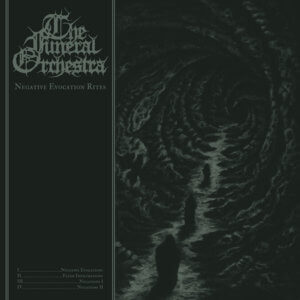 Listening to the new album, I can interpret it more as deconstructed, slowed-down Death Metal than anything resembling Doom. It seems very close to Encoffination or Nortt is spirit as opposed to more melodic Funeral Doom with rich organ or keyboard textures. Do you feel this record is more Death than Doom? Does it blur the borders between the two? Or is the whole discussion of where one ends and the other begins a moot point?
Listening to the new album, I can interpret it more as deconstructed, slowed-down Death Metal than anything resembling Doom. It seems very close to Encoffination or Nortt is spirit as opposed to more melodic Funeral Doom with rich organ or keyboard textures. Do you feel this record is more Death than Doom? Does it blur the borders between the two? Or is the whole discussion of where one ends and the other begins a moot point?
“As I said this is not important to us but we have roots in both genres so it is certainly a mix of both (and more) but that we try to make our own music which hopefully has something a little unique.”
Indeed, the human need to tag, categorise and pigeonhole everything can be more harmful than helpful. Obviously, everything would be clearer if all art could be sorted neatly into precise compartments or niches, but this is not possible. Often what happens is inaccurate categorisation can prove to be a disservice. Music is music and there are so many genres (and an endless web of further subgenres within them) that one can get lost. I’m wondering do The Funeral Orchestra even consider themselves to be funeral doom? Could we call it funeral death as it sonically seems more like slowed-down or unrushed Death Metal?
“I cannot remember that we called ourselves Funeral Doom; it was probably others who said or wrote it. We prefer to leave this to the listener. But of course the words Funeral Death taste pretty good in the mouth and there is nothing wrong with categorising us with this if you wish.”
It undoubtedly takes incredible skill to compose and perform this style of music successfully. Without pace, aggression and dissonance, there’s nowhere to hide if the song-writing isn’t up to scratch. To conjure the right atmosphere and spirit and in order to channel the power that prevails on ‘Negative Evocation Rites’, everything has to be carefully planned and put in its right place; no room here for soulless riffs or mechanical playing. But when extreme music is slowed down in this manner, it takes on an ominous, irresistible aura – perhaps even more disturbing and unsettling than when music is belted out at high speed…
“I’m inclined to agree. It is not easy to write, play and record this kind of music (funeral death) and get the right mood and atmosphere. This is probably partly why it took a long time between the first and second album. However, I hope that there will be a shorter gap for the next album as we are on the right track right now.”
During the opening track on the LP, ‘Negative Evocations’, you refer to “the endless death”. Death is certainly endless on a number of different levels… Firstly, it is forever occurring around the world as people and other things are dying in every moment. Secondly, one could interpret life itself as endless death in that all living things are destined to die. Also, when we expire, each death will endure infinitely. Which – if any – of these did you mean by “the endless death”? It’s ominous, it’s everywhere and we will all be dead for a lot longer than we are going to live…
“There are many theories and philosophical thoughts about death. Certainly also ancient knowledge that rests in the hidden of our present relatively stupid civilisation. I believe that there is a certain truth and wisdom in the words “death is life” or “death is birth”. Then one can poetically interpret it as meaning that death is always endless in life and after – that is, even after or in death itself. Death is everything and everywhere but in different phases of consciousness, the self or not. Now it gets a little fuzzy, but I try to explain that it’s like a loop in something more or less unknown but in different phases and dimensions.”
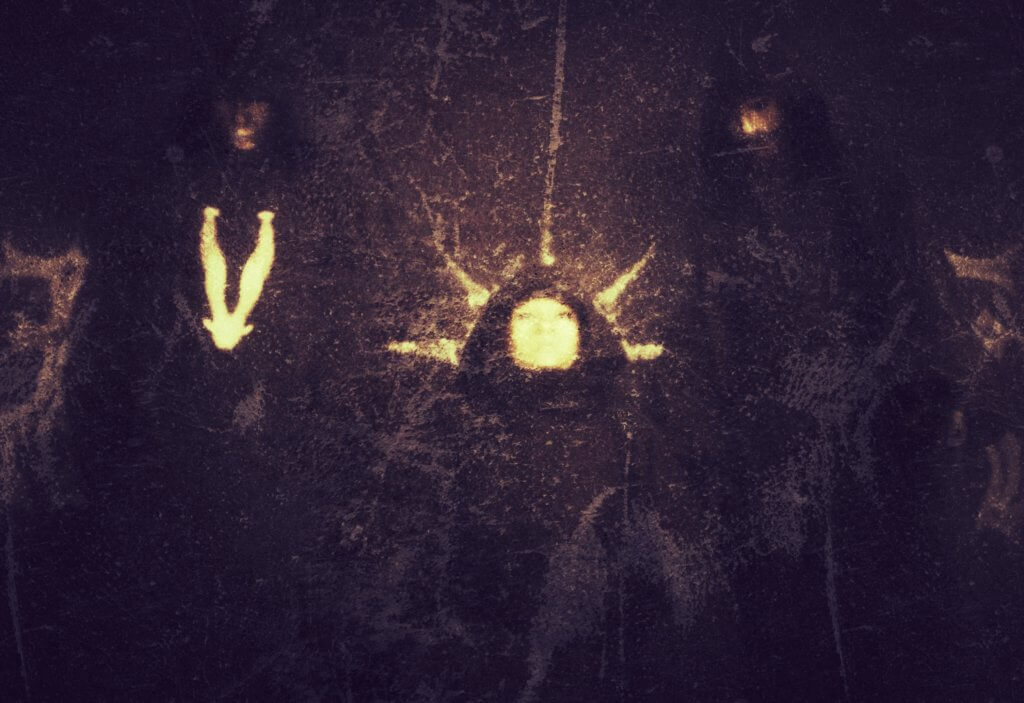
Death is of course very much the prevailing theme in The Funeral Orchestra’s aesthetic on ‘Negative Evocation Rites’. From the band title and members’ names (Priest I, Priest II and Priest III), to the lyrics (“I am the reaper” / “If life is not there, then what is?” / “Rites of the end”), the music itself (ominous death march drums, chants and tortured howls, those harrowing, portentous riffs) and the imagery (both your cloaked / robed demeanour and the accompanying artwork). Do you respect death, fear it or celebrate it? I’d suggest that it’s only a major trauma for those who overestimate their own importance and expect to live forever?
“I respect death. Of course, it’s sad when someone close in this carnal life leaves for something else. A loss occurs. I do not know for sure but something tells me that other dimensions can also possibly be a residence after the so-called death. As I said, death can also be interpreted as a birth depending on how you see it. A beginning of something new or a return to something known but forgotten. I do not walk around afraid of dying but it is also not something I long for at the time of writing. I have things to do and responsibilities that I need and want to continue with until it’s time for me to move on.”
Also, do you have any thoughts on what might become of us after we die? Nothing? Or is a human a conduit for a stream of consciousness that may continue after the body burns out? I suppose in a way I am firing your own question back at you here – if life is not there, then what is?
“Nothing can also be a name for something. I’m quite sure something’s there. With the right mind or what you can call it, I certainly think it is possible to visit or appear in it even though you are in a current carnal body. The question remains and I do not yet have the answer, not yet – but a hope that if you are in the right mood for our music, maybe you can get a few steps closer to the answer. Or at least see fragments of it. See it as an exploratory journey.”
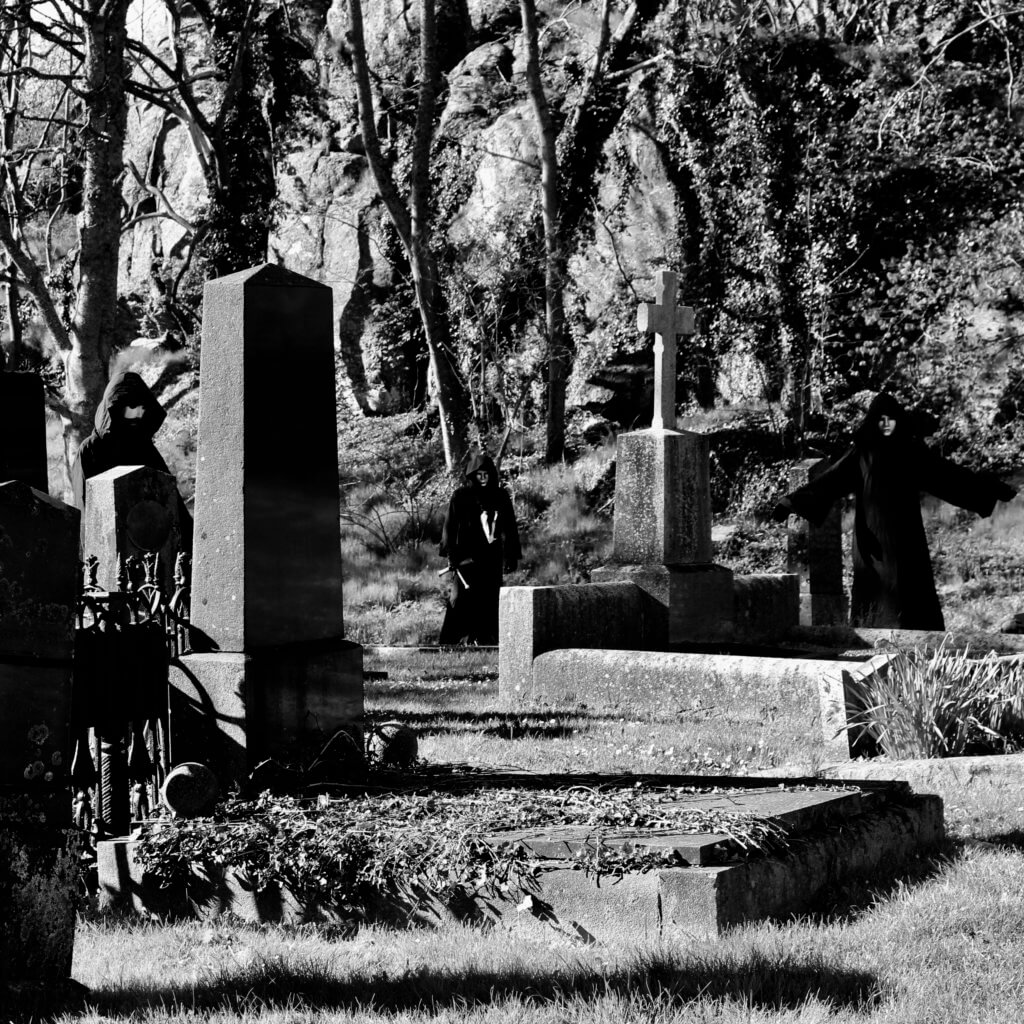
Another line from the record that jumps out at me is “a chaos in the temple of the flesh” from ‘Flesh Infiltrations’. What are you referring to here? The chaos that affects the body as it dies or the chaos that is there as we live, searching for truth, meaning and a sense of understanding?
“Can be interpreted as constantly being some form of inner chaos, shaped in a sick world, trying to fit into something that is ‘wrong’. More knowledge certainly tames the chaos, although some chaos certainly has a driving advantage for oneself as well.”
Finally, have you been dwelling on death even more so than usual since the plague arrived or is it business as usual as life has always presented risks and danger anyway? Sweden has been in the news a lot due to the fact that you had no lockdown there. Do you feel this was the correct approach considering that it’s impossible to hide away forever from a virus?
“We have had a kind of semi-shutdown of some things, but clearly more open than most of the rest of the world. But on the whole, it has been more or less business as usual with some exceptions and with some restrictions as well as in terms of live gigs and related. But then I live out in the country and it differs from living inside a city. Which strategy is best I have no idea right now, the one who lives gets to know, as they say. I’m not a big fan of news and TV, but the little I hear is so different that one wonders what is true and what is not. Not to mention various widely differing theories. I prefer to write new music in my own little world. As I said, the musical life is affected in terms of no live performances, but it has also given more time to create and write and therefore the next album may be ready much earlier than it would have been if the world had been without this plague right now.”

